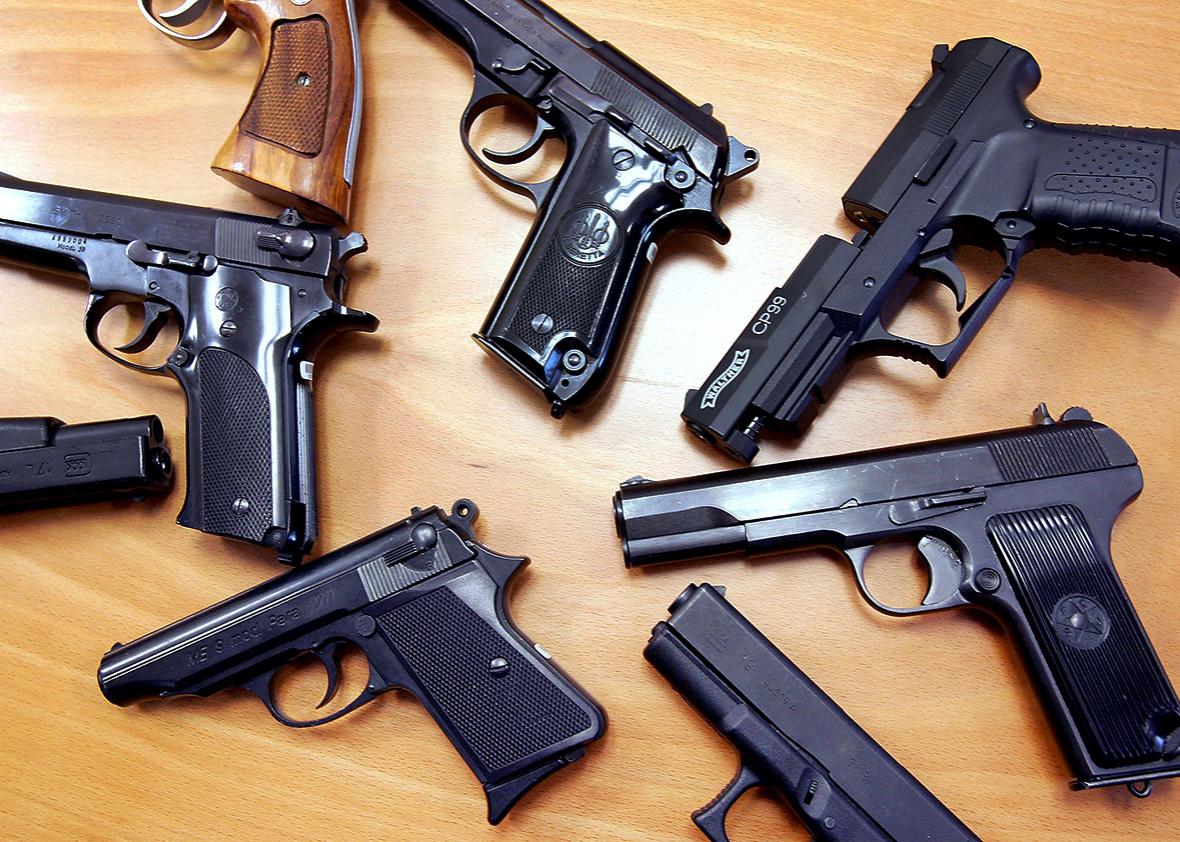There are two truths about gun homicide in America.
The first is that we have a mass shooting problem. On Thursday, 26-year-old Chris Harper Mercer opened fire on a community college campus in Roseburg, Oregon. He killed 9 people and wounded 7 others—allegedly singling out Christian students—before he was killed in a shootout with police.* “Roseburg” joins “Charleston, “Isla Vista,” “Newtown,” “Aurora,” and “Oak Creek” on the long list of small towns and quiet cities marred by horrific gun violence.
It’s one reason President Obama was visibly angry in his brief remarks on the shooting. This, after all, was another address to give to another shattered community with another set of grieving families. “[A]s I said just a few months ago, and I said a few months before that, and I said each time we see one of these mass shootings, our thoughts and prayers are not enough. It’s not enough,” said Obama. “[I]t does nothing to prevent this carnage from being inflicted someplace else in America—next week, or a couple of months from now.” He continued: “This is a political choice that we make to allow this to happen every few months in America. We collectively are answerable to those families who lose their loved ones because of our inaction.”
And it’s too many families. Under the broad definition used by ShootingTracker.com, no calendar week during Obama’s second term has passed without a mass shooting incident. In the 274 days between the first of the year and the beginning of October, there were 294 mass shootings, claiming hundreds of lives. Before Roseburg, it was Roanoke, Virginia. Before Ronaoke it was Lafayette, Louisiana. And so on.
Highly visible, these shootings are the focal point for most of our national conversation on gun control. The last serious legislation for universal background checks came just after the murder of 20 6- and 7-year-olds and six adult staff members at an elementary school in Newtown, Connecticut, which resulted in national calls for new action. (It died in the Senate at the hands of a GOP-led and blue-dog Democrat–supported filibuster.) But as much as the attention makes sense, it also obscures that second truth about gun homicides in America: Ending mass shootings won’t solve the problem.
Between 2009 and 2013, 44,077 people were murdered with guns, according to the FBI. Just a fraction of those came from Roseburg-style incidents. Many more were domestic violence against women. But the large majority involved the deaths of men, and of those, most involved poor black Americans in inner cities and other marginalized areas. “From 1980 to 2013, 262,000 black males were killed in America,” writes Jeffrey Goldberg for the Atlantic. In general, when we talk about gun homicide in the United States, we are largely talking about violence between poor black men.
Too many observers treat this as intractable problem, a product of pathologies and indifference. “[Obama] also should have spent 15 minutes on training the [black] community to stop killing each other,” said former New York Mayor Rudy Giuliani after President Obama spoke on Ferguson last year. But there is no pathology or uniquely black problem. Like most social problems, high homicide rates in poor black communities—“black-on-black crime”—are a product of specific, contingent inputs: “[s]egregation, economic isolation, and the flawed workings of American criminal justice,” writes journalist Jill Leovy in Ghettoside: A True Story of Murder in America.
Segregation forces intimacy and creates conflict, while economic isolation leads to illegal markets—like the drug trade—where there is no legal recourse for disputes. These, by themselves, are conditions under which homicide flares. But there’s also the particular history of segregated black communities and law enforcement. For most of America’s post-Emancipation history, officials were indifferent to violence against blacks, either from whites or from other blacks. “When people are stripped of legal protection and placed in desperate straits, they are more, not less, likely to turn on each other,” says Leovy. Taken together, these conditions breed violence, which is why black homicide rates have always been higher than ones for whites. (Or why, to move away from race, the American frontier was defined by its violence—isolation with desperation and without strong legal authority equals homicide.)
To all of that, add guns. Patchwork gun laws within and between states means there’s no way to keep guns out of a given area. Chicago, for instance, has strict gun laws. But surrounding counties and states don’t. Cheap firearms—through theft, illegal sales, or extended networks of legal buyers—make their way into the city, where they’re used for crime. And while guns don’t necessarily cause violence, they (predictably) increase the lethality of conflicts, causing more deaths.
Put simply, our focus on Roseburg-style shootings—as much it makes sense—obscures the extent to which most victims of gun homicide are poor, black, and live in America’s most isolated communities. Moreover, the steps we could take to reduce those homicides—removing millions of handguns from circulation, preventing illegal sales, reforming police departments to solve more homicides (and deter potential shooters)—don’t have much to do with ending mass shootings. Likewise, the steps to reduce mass shootings—universal background checks, stronger mental health services, liability insurance for gun owners—won’t do much to reduce the nation’s gun homicide problem (although it could reduce our other gun problem—suicides).
Here, it’s tempting to quip about the lack of black faces in our gun conversations and how America isn’t energized—or seemingly interested—in bringing its wealth and power to bear on the problems of inner cities. But, as Obama made clear in his Thursday remarks, Americans aren’t prepared to do anything against gun violence, period. We’re not just captive to broken systems and implacable opposition; we’re either paralyzed in the face of one kind of atrocity or blind to another, much more common one.
See more of Slate’s coverage of the Oregon shooting.
*Correction, Oct. 2, 2015: This article originally misstated that Chris Harper Mercer killed 10 people in the attacks. (Return.)
